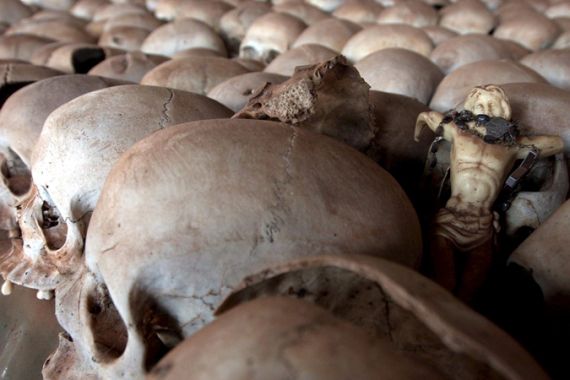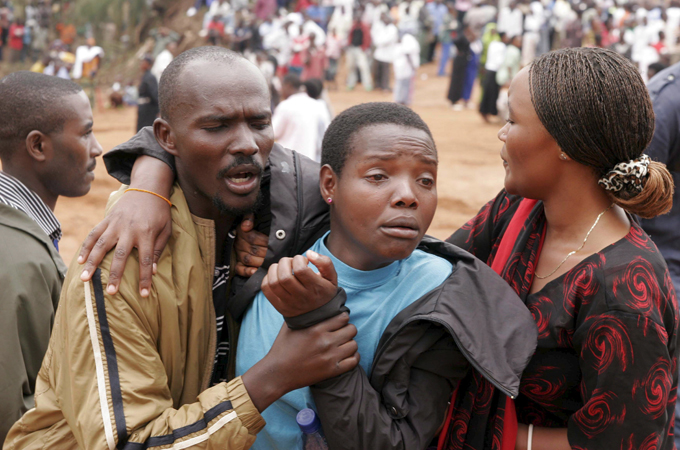Rwandan ex-mayor jailed over church massacre
Gregory Ndahimana jailed for 15 years by UN-backed court for genocide after 2,000 Tutsis killed in his village in 1994.

 |
| Grief still runs strong in Rwanda over the deaths of more than 800,000 Tutsi and moderate Hutus [EPA] |
The UN-backed war crimes tribunal for Rwanda has sentenced former mayor Gregoire Ndahimana to 15 years in prison after finding him guilty of genocide and crimes against humanity in connection with the killing of more than 2,000 Tutsi refugees in his village in 1994.
Ndahimana failed to prevent police from bulldozing a Catholic church in Nyange, where 2,000 people were sheltering, and he assisted in the following massacre, the International Criminal Tribunal for Rwanda found (ICTR).
“The chamber … found Ndahimana guilty of genocide and extermination by aiding and abetting as well as by virtue of his command responsibility over communal police in Kivumu [district],” the court said in a statement.
“The presence of the accused at the scene of the crime had an encouraging effect [on the attack].”
Ndahimana, who was born in 1952, was sentenced after the tribunal dismissed an additional charge of complicity in genocide. He had pleaded not guilty to all charges.
Prosecutors alleged that the former mayor had planned and ordered the massacre at Nyange and opened fire himself to begin the killing.
However, those allegations were dismissed by the judges who said they had not been proved beyond reasonable doubt.
Ndahimana is the third person to be tried and convicted by the ICTR for the killing at Nyange.
The ICTR, based in the northern Tanzanian town of Arusha, was established to try the key perpetrators of the genocide which claimed some 800,000 lives, mainly minority Tutsis, in a span of 100 days.
The court said the scale of the operation that led to the destruction of the church and the murder of thousands of
Tutsis reflected a broad co-ordination by local and religious authorities.
“Though this did in no way exonerate the accused, it did, however, suggest that his participation through aiding and
abetting may have resulted from duress rather than from extremism or ethnic hatred,” the court said.